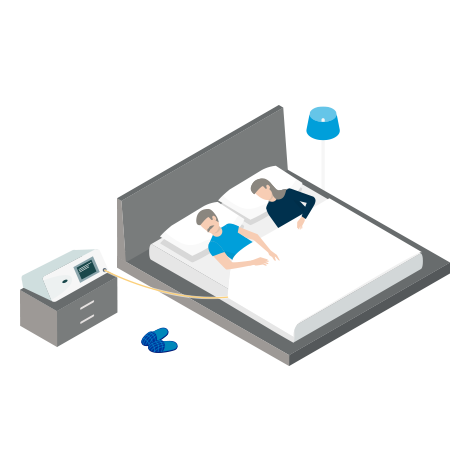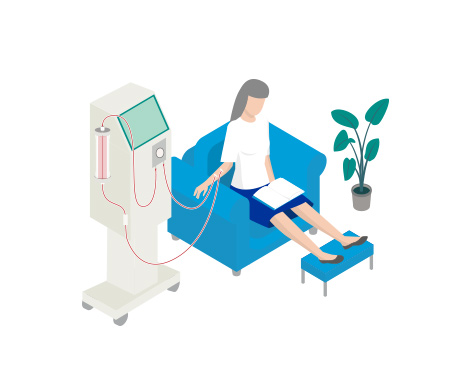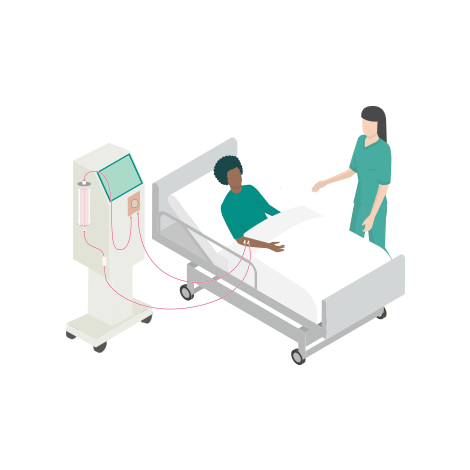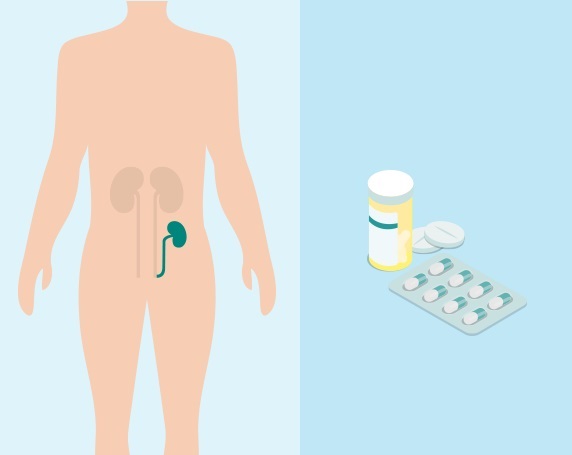Chronic Kidney Disease (CKD) Treatments
Finding the chronic kidney disease (CKD) treatment that is best suited to your physical, emotional and lifestyle needs may improve your quality of life and give you peace of mind.
Most people living with chronic kidney disease (CKD) are treated with dialysis – either at home or at a clinic. Dialysis is a process involving the removal of waste and extra fluid from your blood that your kidneys are no longer able to filter out. Other treatment options for kidney disease include kidney transplant or conservative care.

Peritoneal Dialysis (PD) at Home
Peritoneal dialysis (PD) is a treatment that uses the lining of your abdomen (peritoneal membrane) as a filter to clean your blood while the dialysis solution is in your peritoneal cavity. Because of this, peritoneal dialysis (PD) can be performed at home, at work, or while travelling, either by yourself or with the support of a caregiver. You can perform peritoneal dialysis (PD) during the day or while you sleep, giving you the flexibility to plan your dialysis treatments around your daily schedule. peritoneal dialysis (PD) is typically performed every day.

Home Haemodialysis (Home HD)
Haemodialysis (HD) filters your blood using a machine that has a synthetic membrane called a dialyser. It can be performed at home, either during the day or while you sleep, typically with the support of a caregiver. The ability to treat without a clinician’s assistance may allow you to plan your treatment schedule around work, school, or other activities. Home haemodialysis (Home HD) is typically performed 3-6 times per week.

In-Centre Haemodialysis (In-Centre HD)
Haemodialysis (HD) can also be performed in a hospital or dialysis clinic under the supervision of your clinician. In-Centre HD typically requires that you visit the hospital or clinic 3 times a week for treatments that last between 3-5 hours each time. Your treatment will be closely supervised, and you will be around others who are receiving a similar treatment.

Kidney Transplant & Conservative Care
You may also consider kidney disease treatment options other than dialysis. For example, a kidney transplant if you meet the necessary requirements. For some, conservative care without dialysis may be a suitable option.

